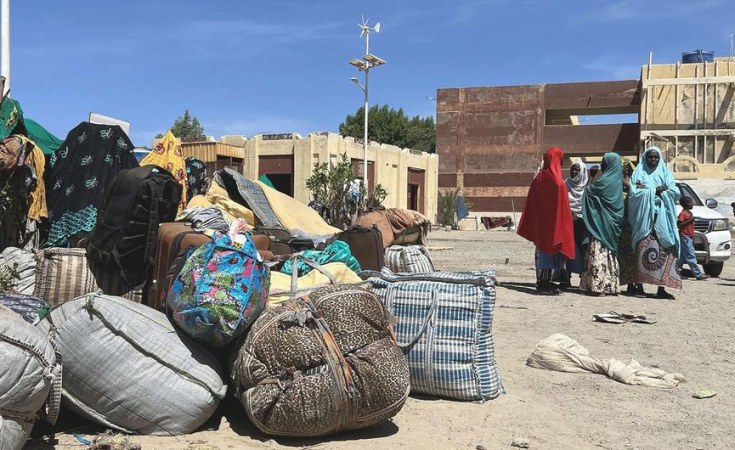Until the parties feel that their financial interests are in jeopardy, they won't be prepared to participate in genuine discussions.
Although the U.S. Department of State's announcement of the Declaration of Commitment to Protect the Civilians of Sudan signed on May 11 in Jeddah, Saudi Arabia, suggested that future "Jeddah Talks" were being set up to facilitate subsequent negotiations on a long-term cessation of hostilities in conjunction with Sudanese civilians and regional and international partners, the declaration itself made only brief mention of subsequent discussions and provided little assurance of follow-through on behalf of either the Sudanese Armed Forces (SAF) or the Rapid Support Forces (RSF).
The Jeddah Declaration simply states that the SAF and RSF are "bound by the principles of international humanitarian law" (IHL), and "reminds" them of their obligations therein. The two parties are already supposed to be bound to these humanitarian laws, and so the Declaration provides nothing new in the way of commitments or assurances. Beyond generalizations intended to save face, the SAF and RSF have made no tangible commitments to achieving peace or protecting the people on the ground in Sudan. The Declaration of Commitment may be a first step, but the next steps must be much more substantive in order to achieve peace for the Sudanese people.
Even if a temporary ceasefire is achieved in subsequent Jeddah Talks -- for which no actual timeline has been given -- its sustainability is dubious. According to the declaration, a monitoring system of the ceasefire to "help hold the parties accountable to what they've agreed to do, will be created. However, given that both parties have previously broken ceasefires, these mechanisms lack value if the consequences of breaking the ceasefire are not punitive measures.
This very violent and chaotic battle, is a warlord's war par excellence: its spectacular brutality on the streets of Khartoum is angled towards global newsmedia's relentless cameras and the region's geopolitics, and attracts an ever-changing group of opportunists and exploiters. To cut everyone off, the messages from the United States and other partners must make it clear in the strongest terms that commanders are responsible for the actions of their forces and will be held accountable for violations of IHL. US President Joe Biden has threatened sanctions against any party that targets civilians or impedes the immediate implementation of the cease-fire and the transfer of power to civilians; and against those responsible for "threatening peace, security and stability in Sudan" and "undermining the democratic transition in Sudan".
The ongoing conflicts in Sudan are subject to a complex web of international laws, and the key legal frameworks that may apply: (1) International Humanitarian Law - through its GC of 1949 & their Additional Protocols of 1977 - which regulates the conduct of hostilities and seeks to protect civilians and other non-combatants. (2) International Human Rights Law - through Universal Declaration of Human Rights and the ICCPR - which protects individuals from abuses by state actors and non-state actors. (3) International Criminal Law - through the Rome Statute of the International Criminal Court - which seeks to hold individuals accountable for the most serious crimes, including war crimes, crimes against humanity, and genocide. War crimes and crimes against humanity committed in Sudan can also be tried before the ICC, as all the conditions required can be met. Judicial authorities in other countries can also investigate and prosecute international crimes committed in Sudan as war crimes and torture are subject to "universal jurisdiction".
In terms of Domestic Law, it regulates the conduct of hostilities and seeks to protect civilians during armed conflicts. The following statutes are relevant to the ongoing war: (1) Sudanese Armed Forces Act; (2) National Security Act; and (3) Criminal Act;
However, these laws have been used to justify human rights abuses by the Sudanese armed forces and the National Intelligence Security Service (NISS). In addition, there have been concerns about the independence and impartiality of military and special courts established under these laws. Overall, these laws neither guarantee the security of civilians nor effectively regulate the conduct of hostilities in Sudan's ongoing conflicts. There is a pressing need for greater accountability and justice for the victims of these conflicts.
Both Al-Burhan, commander of the SAF, and Dagalo, commander of the RSF, must be stripped of all credibility for their roles in the destruction of Sudan. Having repeatedly failed to punish either commander for their roles in the June 2019 massacre and the October 2021 coup, any subsequent agreements on the political and military future of Sudan must ensure that they are unable to use their military positions to gain control during a post-conflict transition.
In addition, the SAF and the RSF ought to be subjected to the same degree of coordinated international punitive sanctions as Russia was after its unprovoked invasion of Ukraine, which effectively cut off Russia from much of the global financial system. Until the parties feel that their financial interests are in jeopardy, they won't be prepared to participate in genuine discussions.
Abdelmonim Omer Ibrahim is the former chairperson of the Sudanese Congress Party-Abroad. A lawyer, he has previously worked with the Cairo Institute for Human Rights (CIHRS), and served as the General Secretary of the Sudnaese Lawyers Association Abroad.


